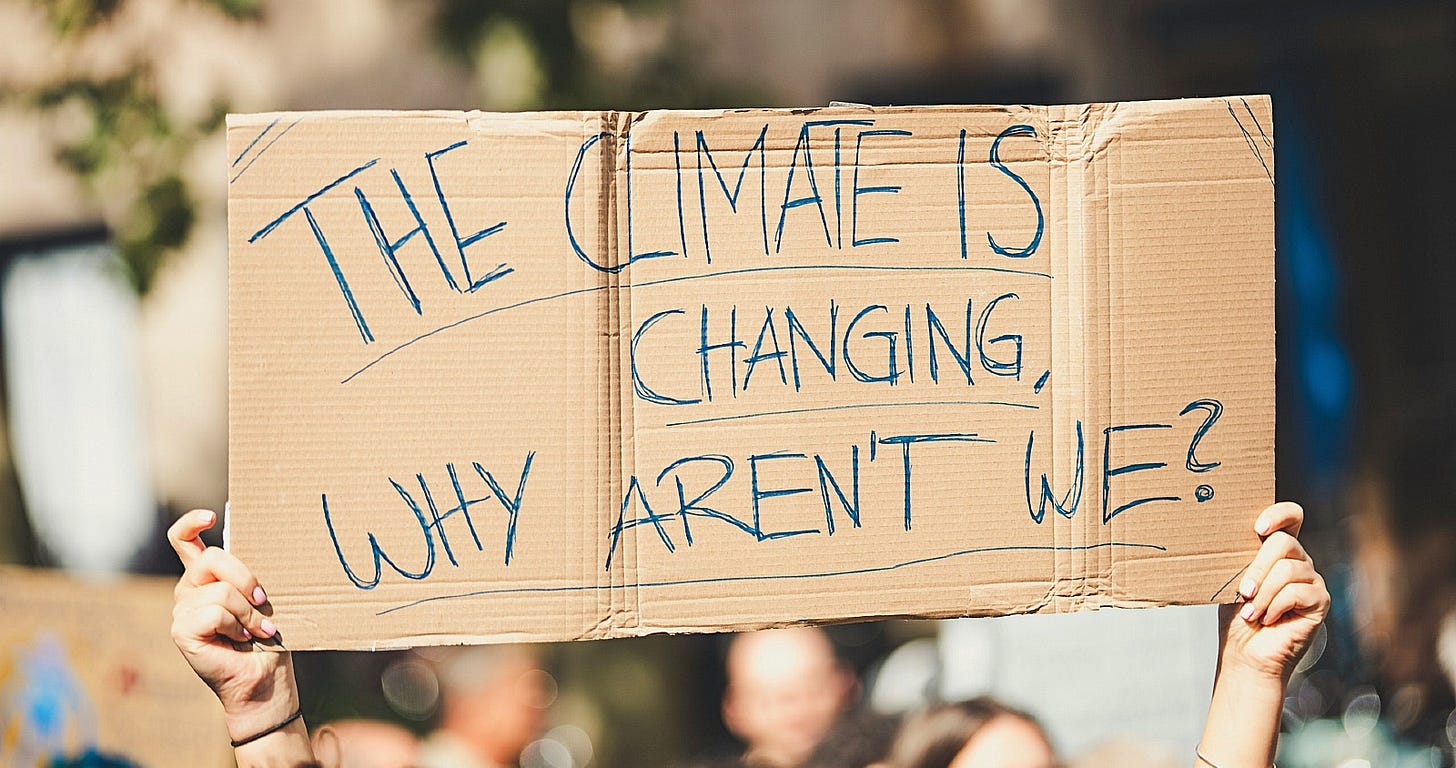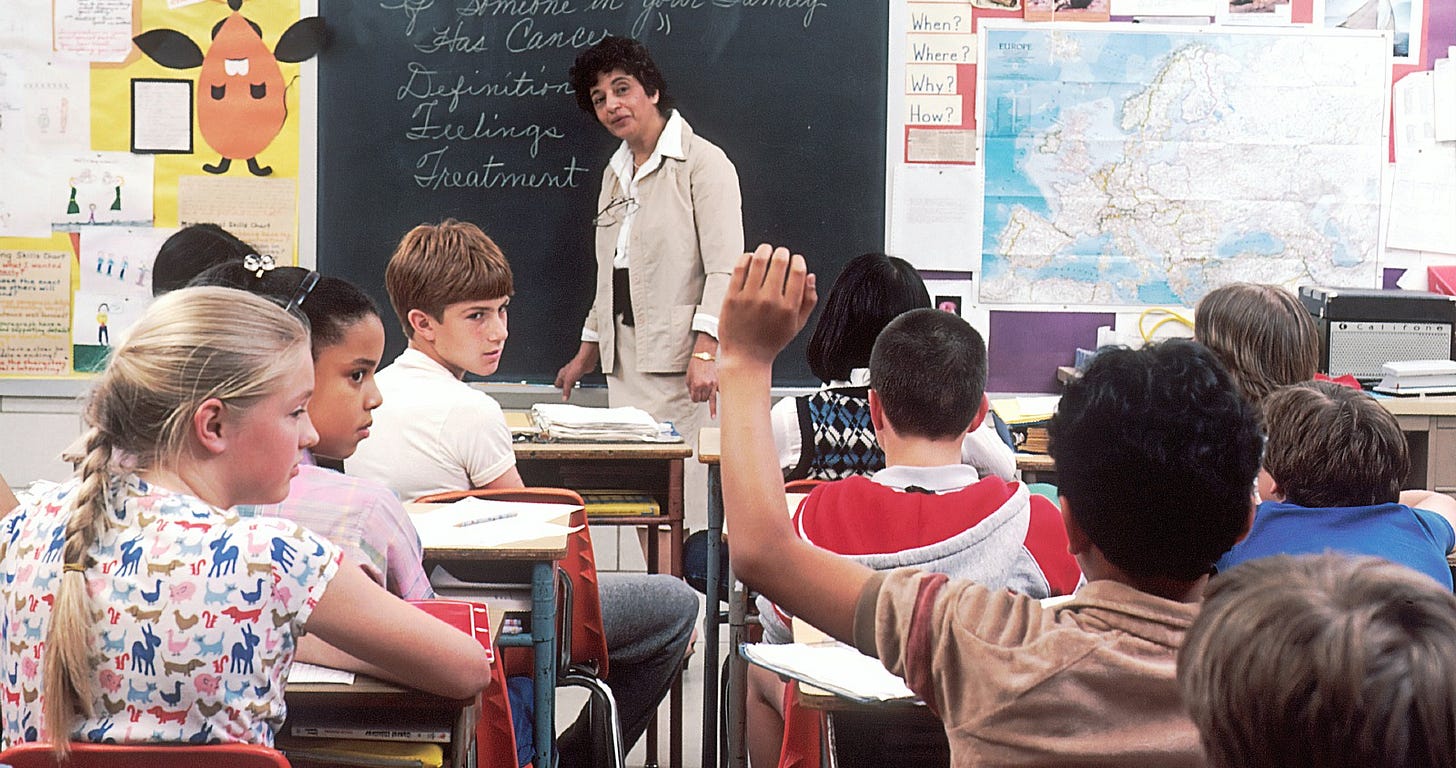Better Questions Will Save Our Climate Future
Experience how thoughtful questioning transforms climate conversations into pathways for real environmental progress.
Picture yourself standing before a panel of world leaders, cameras rolling, the fate of climate policy hanging in the balance. You have one chance to ask a single question. What would you say?
If you're like most people, your palms are already sweaty just imagining it. The pressure to ask something meaningful, something that could move the needle on climate action, feels overwhelming.
You would be right to feel the pressure.
I've spent four decades as an ecologist wrestling with complex environmental questions across four continents. What I've learned is that the quality of our questions shapes the solutions we discover.
You’ll need to find a good one.
Yet, in our rush to find answers to the climate crisis, we often forget to examine whether we're asking the right questions in the first place.
The Problem with Climate Questions
Most climate change questions fall into predictable traps.
They're either so broad they become meaningless ("How do we solve climate change?") or so narrow they miss the bigger picture ("What's the carbon footprint of my coffee?").
Many are statements in disguise, loaded with assumptions that shut down honest dialogue before it can begin. Take this common one… "Why aren't governments doing more about climate change?"
It seems reasonable enough.
But embedded within is the assumption that governments aren't doing enough (debatable), that they should be doing more (complex), and that they're capable of doing more (questionable). It's less a question than an accusation dressed up in interrogative clothing.
It also assumes that the government, however defined, has the power to fix the problem (unlikely).

The Mindful Sceptic's Approach
A mindful sceptic approaches questioning differently.
Rather than using questions as weapons or rhetorical devices, the truly curious critical thinkers craft questions that:
Challenge hidden assumptions
Open new possibilities for action
Bridge divides rather than deepen them
Encourage systemic thinking
Here's how that earlier question might transform through a mindful sceptic lens:
"What structural barriers prevent faster climate action, and how might we redesign systems to overcome them?"
Notice the difference? This version:
Acknowledges complexity
Avoids blame
Invites collaborative problem-solving
Points toward actionable solutions
Questions That Move Us Forward
The best climate questions share certain characteristics:
They're specific but not narrow…
"How might we redesign urban transportation to simultaneously reduce emissions and improve quality of life?"
They embrace complexity without getting lost in it…
"What feedback loops between economic systems and environmental protection could we strengthen?"
They focus on possibilities rather than blame…
"Where are the most promising leverage points for accelerating clean energy adoption?"
Of course, questions don’t have to be jargon-heavy or sound like they came out of think tank, but they do need to be nuanced enough to avoid binary answers and have substance worth applying some problem-solving to find answers.

From Questions to Action
Having better questions doesn't solve climate change. But it does change how we think about the problem. And how we think about problems determines what solutions we can imagine and pursue.
Next time you're in a climate discussion, try upgrading your questions. Instead of "Do you believe in climate change?" (a dead-end question if there ever was one), try "What changes have you noticed in local weather patterns over your lifetime?"
Watch how different questions lead to different conversations.
Notice how they open up new possibilities for understanding and action.
The climate crisis is complex, but our path forward begins with better questions. As a mindful sceptic, your role isn't to have all the answers but to help create conditions for better answers.
Want to dive deeper into mindful scepticism and its applications to today's biggest challenges?
Subscribe to the Mindful Sceptic newsletter, where we explore these ideas in depth.
Each week, we examine a different aspect of critical thinking and its practical application to environmental challenges.
Join a community of thoughtful sceptics working to ask better questions and find answers. Because the questions we ask today will shape the solutions we find tomorrow.
Remember that World Leaders panel? What question would you ask now?




